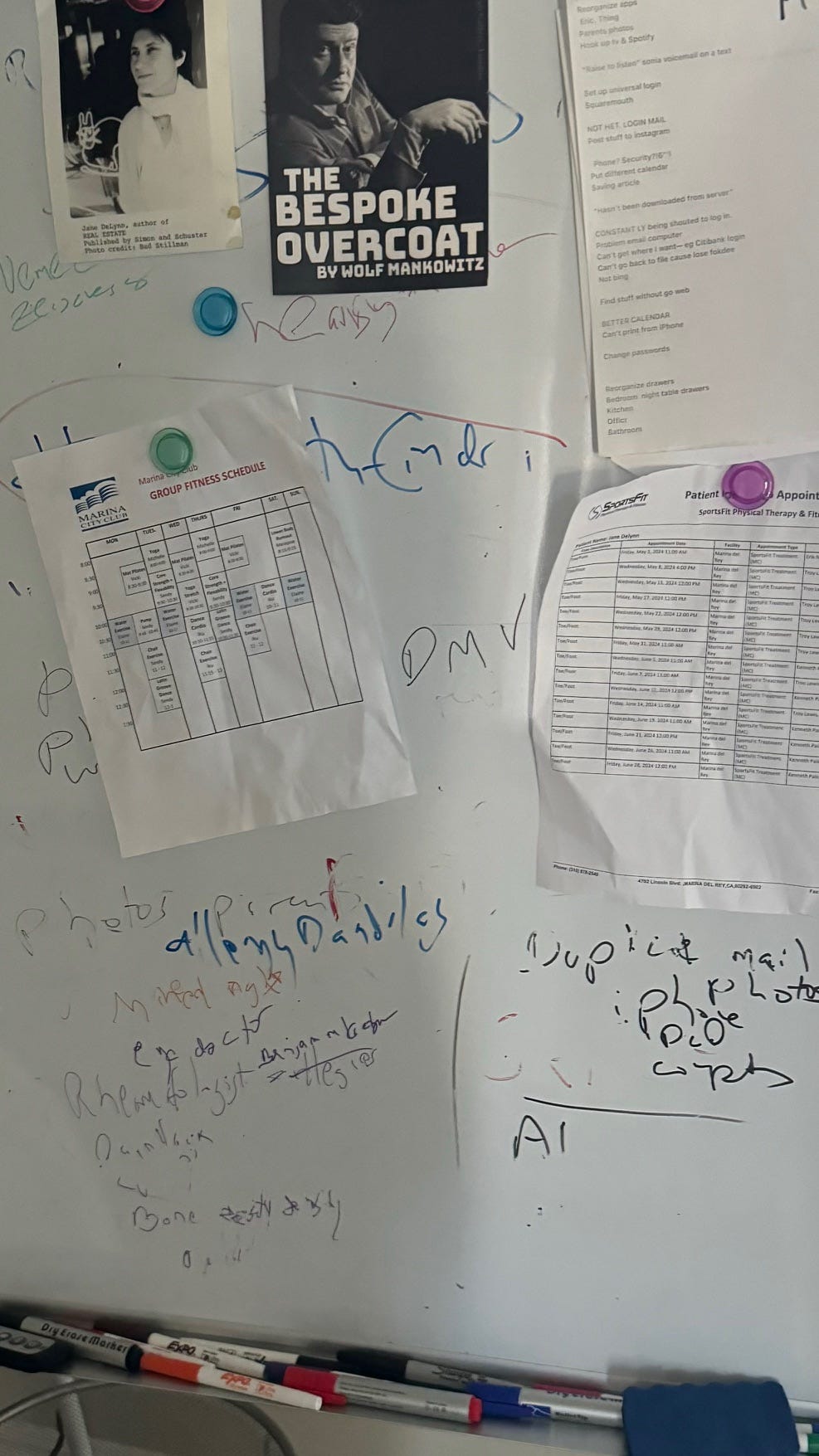When I write fiction, I am free. Free to imagine and invent. Free to make things intense and dramatic. Free to say things for comic effect. Free to make things really bad and really good.
For the last few years, starting with a piece in The Girlfriend, “Oh No, I Wasted the Pandemic!” (bit.ly/3ApvvOV), I’ve been writing personal essays, including the ones I write here (some 77 of them now!). It’s a more direct connection, but it means I must tell the truth—not shade it for dramatic effect.
An occupational hazard for a novelist is to exaggerate things. I want to tell the best story possible, so suddenly the person who shrugged his shoulders at my suggestion “absolutely hated it!” And then I can speculate why, make up a story. I hear myself intensifying encounters routinely, just to be entertaining at dinner.
Here at The Pleasure Principle, mostly I have been honest and accurate. But in last week’s post, “Flaunting Your Flaws,” I was not. The piece started with the public laments of a writer who “boasts” about her inability for friendship. And then I went on to talk about two good friends inaccurately--and what kind of friend is that?
I want to set the record straight now. I was wrong. In the first case I said a friend with ADD didn’t try to overcome it. Even though I know her well, I was in error. Here are some ways she tries to cope, with lists and whiteboard.
I made an assumption that was incorrect just to further my thesis: that some of us flaunt our flaws. How could I know her so well and have such an inaccurate idea about her efforts?
In the second case, I spoke about a friend who likes lemon in her water only in restaurants, and I invented some reasons for that. I was uncharitable! I was in error! She likes lemon in her water at home, too. Again, I was using the fictional tools of exaggeration and invention to further a thesis, to pep up a piece.
But I realize that’s not what my compact with my readers (you guys) permits! (Nor, more importantly, my compact with my friends.) While a personal essay does not usually require fact checking, I need to be more careful. I can’t use the tools of fiction here, not even for comic effect. In writing last week’s post, I myself was “flaunting my flaws” by applying the wrong rules to this space.
Can you relate? Have you ever exaggerated to ill effect? Will anybody keep me company?







Public recognition of one's errors is a huge quality, no matter what the context actually is, and I tip my hat to you for doing this.
Oh, we all make mistakes. Made a worse one last night--stepped on someone's foot in my tap dance class. In tap shoes. The woman has a bruise.
Lemon in water: not too controversial. You remedied by re-writing. But hey, then there's memoir! So many writers I know have had the same experience: you research your subject into the ground--in my case I sometimes took passages straight out of my journals, where I'd written down conversations right after they happened, or even as they were happening. The family somehow finds the (tiny little publisher, not very well publicized) book and claims the writer is delusional and hateful and wildly inventive. I love a quotation from Salman Rushdie, recently used by Shalom Auslander in his new memoir, Feh: "Those who do not have power over the story that dominates their lives, power to retell it, rethink it, deconstruct it, joke about it, and change it as times change, truly are powerless."